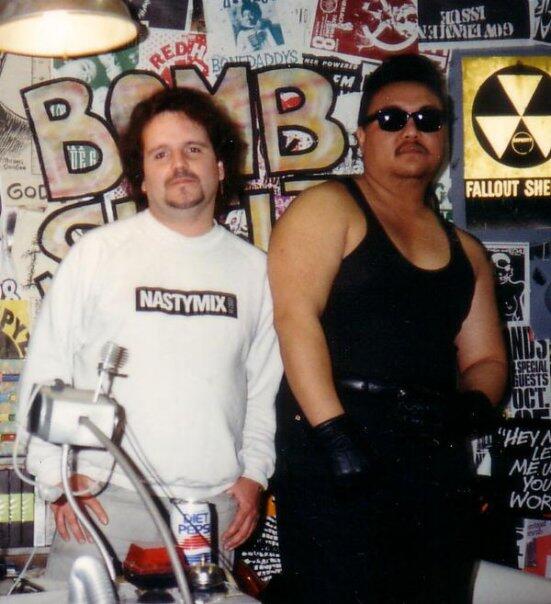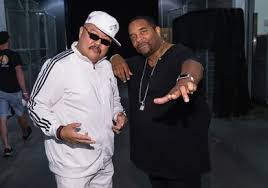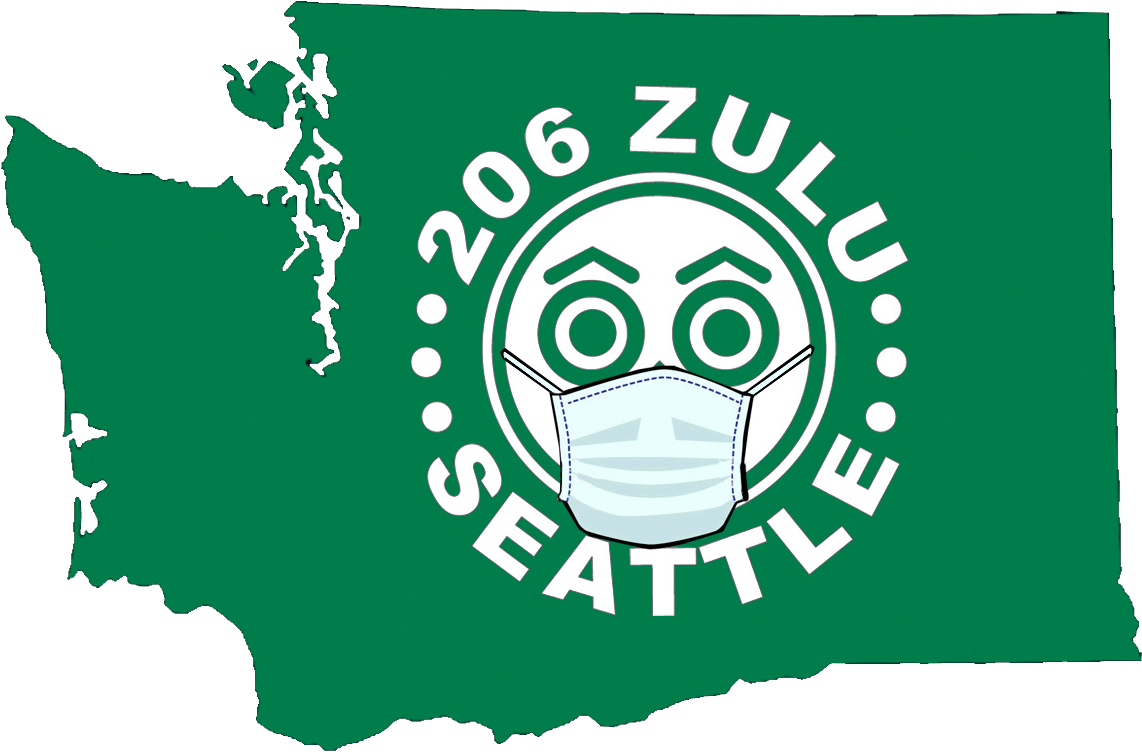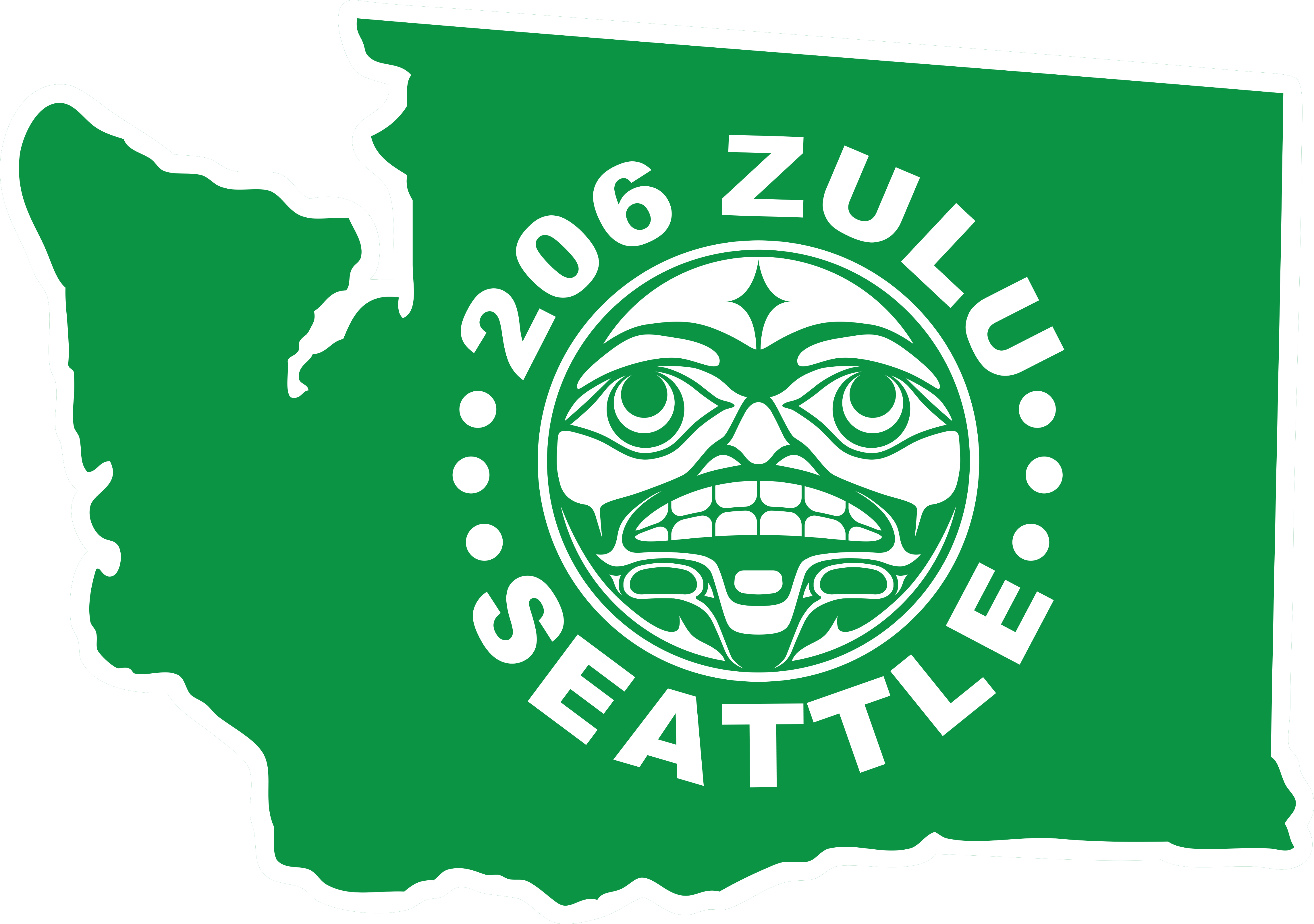The first time I met Nasty Nes, I was in high school in Olympia, Washington. My boy JMG had connected with Nes and his Crazy Pinoy Productions as a street team rep. He’d been driving up, picking up boxes of Mobb Deep posters, Rawkus promo CD’s, and stacks of copies of the Loud Records Brolic cassette mixtapes. One day, me and some guys took the hour ride up to Nes’s office with JMG. When we got there, the little upstairs rental space Nes was working out of was crammed with boxes of promo vinyl and envelopes of flyers and posters. Crates of LPs were strewn about and platinum and gold record plaques were on the wall.
Nasty Nes walked out of a recess in the office and despite the disarray of the room’s contents and the cramped space, he looked like a star in his stunter shades and yellow Adidas track jacket. As a kid looking at the guy who pioneered all-rap radio on the West Coast, released Seattle’s only international hip hop hit record at the time, and DJ’ed for the city’s first rap group ever, the Emerald Street Boys, I felt like I was in the presence of someone who built a history I was only beginning to be a part of.
Ironically, that day Nesty Nes treated us kids like we were the stars. He greeted us like we were headlining acts from out of town, hugging each of us and handshaking with both hands, smiling in a way that both disarmed and uplifted us. When we left later that evening, we were all part of Nes’s street team. Years later, running my own street teams and humbly finding myself making my own marks on the timeline that Nes helped to build, I’d think back on that moment and find my humility tempered while I remind myself to give my smile and praise generously.
These are the moments that define greatness in a world of pomp and flash. When Nestor Rodriguez died on February 15, 2025, after battling a range of health issues, communities from all over came together to mourn his passing and celebrate his legacy.

Many in Seattle, the city Nes immigrated to from the Philippines, would remember him for co-founding NastyMix Records with Sir Mix-a-Lot, Greg Jones, and Sheila Locke in 1985. The music that came out of that label, would draw the world’s eyes towards the Pacific Northwest hip hop scene and impact the local industry for years to come. Others would remember him for putting them on the radio for the first time on his groundbreaking show FreshTracks on KKFX (KFOX) FM. They might remember the music he exposed them to, whether it was FreshTracks being the first show to play “Rapper’s Delight” in Seattle or the otherwise unsung artists he played while hosting Rap Attack with “Shockmaster” Glen Boyd on 90.3 KCMU, paving the way for the station’s modern success in its most recent incarnation as KEXP.

Nes’s legacy lives on in the impact he made working as rap editor for the Los Angeles based music trade publication, HITS magazine, or shouting out Seattle when he popped up to close out the Eazy E song, “Radio.” The list of trails that Nes blazed and radio and industry moments he had his hands in, goes on and on, which is probably why the October 1996 issue of the Source Magazine referred to him as “the West Coast equivalent of NY’s DJ Red Alert.”

That quote speaks to the impressive mark a changemaker like Nasty Nes made on that timeline of history but those who knew him, would point to an even greater legacy, one that can be better understood in the way that he made young people feel about themselves, the way he did for me and JMG. Most people that knew Nes have similar memories, those of warmth and empowerment, guidance and encouragement.
When Nes Rodriguez passed, a family friend and another radio pioneer, Derek Duncan aka D-Tragic, created a Gofundme to help support Nes’s family in the trying times following his passing. (To support the Rodriguez family and contribute to that campaign, click here.) In the information section of the campaign, D-Tragic wrote, “For decades, he (Nes) was a voice that uplifted artists, a mentor to countless individuals, and a pillar in the community. His impact on hip-hop, radio, and the culture is something that can never be overstated.”
It’s absolutely true that Nasty Nes’s contributions to media and the industry surrounding Hip Hop culture cannot be overstated and at the same time, most people would still agree that the beauty of what Nes will leave behind is a product of the former portion of D-Tragic’s sentiments. Nes Rodriguez used his voice to uplift artists of all types and he gave freely of his wisdom, platforms, and resources so that other people could build their own legacies.
For that, not only will he always be remembered but his work will live on as those of us impacted by his character continue to build the history he helped to create.
To read more and keep up with progressing events, readers can visit Nasty Nes’s webpage, https://rapattacklives.com/.


